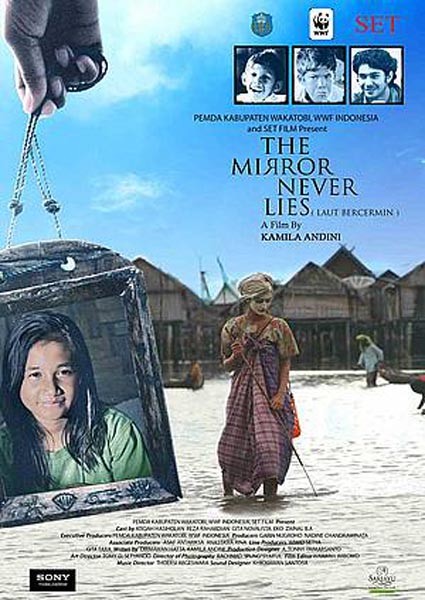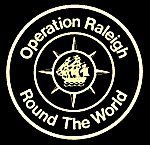On completion of Raleigh Indonesia Steve returned to the UK and returned to his military duties. He was then selected for Operation Raleigh in 1989, this time to Cameroon, and teamed up again with several ex Indonesian staff including Nick Horne, Gill Fairweather and Ashley Hyatt.
Realizing the great work that expeditions such as Raleigh can do for the participants and the host country, Steve teamed up with Wandy Swales and led further expeditions to Seram under the banner of Swaletreks. This then turned into Trekforce Expeditions, which developed projects worldwide. Retiring from his military duties in 1994, Steve then continued to plan, lead and execute projects and expeditions to Indonesia for World Challenge and joined the team at Operation Wallacea as well as working on several television and wildlife documentaries continuing to promote safe and adventurous trips.
His latest major venture was working on a feature film and here Steve gives us an insight into the complex world of filmmaking.
The Mirror Never Lies – A film for Indonesian conservation
 Getting everything together for a feature film is no mean feat. In most feature films the director has a vision of how he or she would like to interpret a story and bring their vision to the big screen. Once the concept and a synopsis have been captured, a creative team takes over. They draft the preliminary script and develop the project budget. The director shoulders the multiple tasks of casting, shot selection and script editing. Special tasks are designated to the Director of Photography and the Art Director. Assistant directors support this process and ensure that the director’s creative vision is achieved. A production designer would also be appointed.
Getting everything together for a feature film is no mean feat. In most feature films the director has a vision of how he or she would like to interpret a story and bring their vision to the big screen. Once the concept and a synopsis have been captured, a creative team takes over. They draft the preliminary script and develop the project budget. The director shoulders the multiple tasks of casting, shot selection and script editing. Special tasks are designated to the Director of Photography and the Art Director. Assistant directors support this process and ensure that the director’s creative vision is achieved. A production designer would also be appointed.
In The Mirror Never Lies, the director chose to highlight the outstanding natural beauty and marine biodiversity of Indonesia – to make a film for conservation. After several months of research, the South Sulawesi Islands of the Wakatobi were selected. The Wakatobi lies at the heart of what is known as the Coral Triangle and plays host to the Bajo people. The Bajo’ s local wisdom is captured through a family drama and a mirror, which reflects life for the Bajo people.
The Coral Triangle is an area containing over three quarters of the world’s known coral species and provides the resources to support the livelihoods of around 120 million people. The Bajo Sea Gypsies are one such people whose cultural heritage and symbiotic relationship with the marine world serves to highlight the importance of conserving the global treasures of the Coral Triangle.
With the film script in place, the task of putting everything together in detail begins, finding the actors, rehearsing, putting together the technical crew, tape machines, lights, sound and logistics. This is what’s known as the pre-production phase. It can often take months if not years to get the right actors at the right time with the right crew to the right locations.
To produce this film, a collaboration agreement was made between the local Government of the Wakatatobi, World Wildlife Fund (WWF) Indonesia and the production SET films. The local Government under the Regent of the Wakatobi and the CEO of WWF Indonesia then became the Executive producers. Designated producers are then responsible for raising the funds required, hiring key personnel and arranging the film’s distribution. Associate producers answer to the producers and, simply put, act as trouble shooters overcoming the challenges of the production process.
Long before the shooting starts, set preparation begins. The art department designs and creates the sets, normally employing the largest number of people. Logistic teams go about the mammoth task of transferring tons of lighting and sound equipment to the designated shooting locations.
With the locations sourced and camera checks done, the camera crews deploy to the site. The production shoot then takes place. The production sound crew, a mixture of production sound mixers, boom operators and sound assistants, is responsible for the sound recording on location. Shooting is done in a series of takes and for The Mirror Never Lies the entire shoot was completed in just over seven weeks. An operational base on Hoga Island provided both the food and accommodation for the crew and cast. The day to day running of the production shoot goes to the line producer. Strong leadership is required in this post and a highly competent person is required to keep all departments running concurrently, rather like an operations manager in a busy company. The lighting department plays a key role as artificial light is often required and the wardrobe department takes care of all the costumes and make up.
After the shooting phase comes the post-production phase, the editing process is where the director’s vision of the film is achieved. Like most films nowadays, this film was shot using digital cameras and the raw footage was transferred to film, the soundtrack added. The film editor, music illustrator and sound designer all work together to complete the film.
With a lot of good luck, and for this particular film three years of blood, sweat and tears, your film may just be ready for a studio audience. A media showing followed by a Gala performance is normally held prior to general release, so the producers and directors can gauge how the filmed is received.
The Mirror Never Lies had its Gala premiere in Jakarta and was given rave reviews. The Global Film Initiative awarded this film the distinction of Honorable Mention for its accomplished storytelling, offering audiences a unique perspective on daily life of Indonesian coastal communities.
The plan is now to get the film shown at various film festivals around the world. Interestingly Nazir Foead, who was a venturer on Operation Raleigh Indonesia 10F with Steve, is now Conservation Director with WWF Indonesia. This agency funded The Mirror Never Lies and all of the profits from the film go to WWF. Just goes to show that connections made during the expedition to Seram have endured and participants in the expedition have gone on to do some wonderful things with their lives that are helping make this a better world.
As I upload this item to the website Steve tells me that he is currently in the UK networking and promoting the film. It’s very wet and windy and his local football team has just got relegated. I do a quick Google and discover that relegation is when a team loses its current championship run. So join me in wishing him major success with the film. He certainly deserves it!

